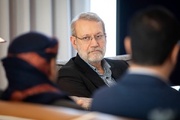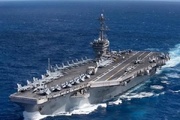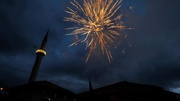Hossein Amir-Abdollahian made the remark in the third International Conference on International System, Regional Developments, and Iran’s Foreign Policy that was held at the Faculty of Law and Political Sciences, ATU, on Monday.
According to ISNA, he went on to add, “analyses on the current situation in the Middle East is uncertain due to the unpredictability of Trump, and this has complicated the situation for regional actors. The various aspects of America’s new president must be analyzed over time.”
“Besides the US, Russia, UK and France that were former powers on the international scene, we are now witness to emerging actors in Western Asia,” he said. “In regional developments, United Arab Emirates is fighting alongside Saudi Arabia in Yemen, or Qatar is backing Saudi measures and terrorist activities in the region, and the Israeli regime is trying to take advantage of the situation to gain more security for itself.”
The Iranian diplomat further deemed other actors in the Middle East such as ISIL ‘subnational’, adding “these actors play a negative role in the region and move toward the escalation of conflicts.”
“While Saudi Arabia is pursuing a negative role in Iraq, Iran has been providing Iraq with electricity,” he said, while noting that currently five provinces in Iraq are connected to power grids thanks to the efforts of Iranian experts.
He went on to stress, “in the fight against terrorism, we stand side by side Syria, and at the same time we have established interactions with Syrian opposition to arrive at a political solution.”
He further noted that concerns over the partitioning of Iraq and Syria is “quite grave”.
The third International Conference on International System, Regional Developments, and Iran’s Foreign Policy kicked off in Tehran on Monday and will wrap up on November 22. The conference focuses on Iran's foreign policies in regard to regional and international developments, particularly the Syrian situation, combating terrorism, and the future of the US presidential election and its impact on security developments in Western Asia.
MS
























Your Comment